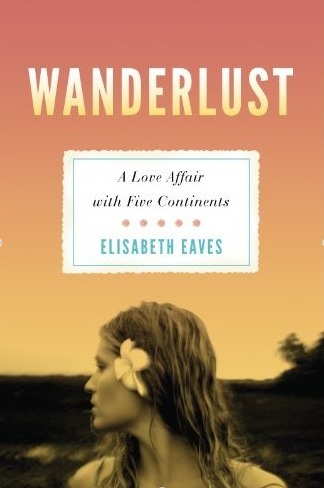Interview with Elisabeth Eaves: ‘Wanderlust’
Travel Interviews: Eva Holland talks to the author about the intersection of lust and wanderlust in her new book
07.01.11 | 9:25 AM ET
 Photo by Trevor Butterworth
Photo by Trevor ButterworthMore than two years ago, we published Wanderlust, an essay by Elisabeth Eaves that explored the ways in which her early travels were tangled up with her early romances. Now, to our delight, a book that evolved from that essay has been released, and the New York Times calls it a “heady, headlong chronicle of a decade and a half spent adrift” and “a dizzying progression of exotic routes and romances.”
“Wanderlust” dashes between continents and cultures as Eaves travels from Spain to Egypt and Yemen to Papua New Guinea and beyond, finding and leaving men along the way. At the same time, it delves deeply into her motives, examining her relentless need for change, movement and new challenges.
I caught up with Eaves by email to ask her about relationships on the road, writing such a highly personal memoir, and about the current state of her wanderlust.
World Hum: Travelers often describe themselves as being afflicted with wanderlust. But for many, the urge to travel is nothing like the all-consuming drive for movement and change that you describe in your book. Do you think we need more words to capture the full spectrum of wanderlust?
Elisabeth Eaves: There are times when the word is used in ways I wouldn’t use it. Choosing to take lots of vacations to great places is a wonderful thing, but it’s not what I call wanderlust. “Wanderlust,” to me, denotes a long-term obsession, even a compulsion. When you have wanderlust you have to keep moving on. Home may be an alien concept.
One of the themes of the book is the intersection of lust and wanderlust. Do you think we’re often more open to forming new relationships, or initiating new sexual encounters, when we travel?
 Yes, I think we’re more open to new relationships, and not just sexual ones. When we’re on the road deliberately and voluntarily, we’re already seeking what’s new. We talk to strangers when we’re traveling. How often do you do that at home? Particularly when we’re traveling alone, we’re more open to meeting people as we seek help, guidance, companionship.
Yes, I think we’re more open to new relationships, and not just sexual ones. When we’re on the road deliberately and voluntarily, we’re already seeking what’s new. We talk to strangers when we’re traveling. How often do you do that at home? Particularly when we’re traveling alone, we’re more open to meeting people as we seek help, guidance, companionship.
So romantic liaisons become more likely simply by virtue of meeting more people. But there’s more to it: We want to be swept away when we travel. Romance with a local makes us feel like we’re fitting in. Sharing new adventures with another person is bonding. Romances far from home can feel emotionally safer because there are fewer expectations. We’ve gone away in the first place because we want to feel different, and that other person makes us feel more different. And sex and romance themselves are a kind of adventure; we like to pair adventure with adventure.
There has always been a link between sex and travel—male writers from Casanova to Paul Theroux have explored it thoroughly. Women haven’t talked about it as much on the page, but it’s there.
The book ends right where it begins, with you arriving back in Vancouver with four battered suitcases to your name, so we don’t see your later transition to a more stationary life in New York. Did you struggle to stay put as you settled in to your new life, and do you still get hit with the urge to escape, even today?
I “settled down,” as it were, about four years ago and I haven’t felt the need to take off again in any kind of long-term way. I’ve satisfied the desire to travel through vacations and travel writing assignments. Now I think my feet are getting a little itchier, but I would travel in a different way now than I used to. I always want to have a place to go home to.
This is a memoir about relationships as much as it is about travel. Was it hard writing about such personal details, either for yourself or out of concern for other characters in the story?
It’s not so hard to expose the intimate details of your life before strangers—to them it’s just a story. But it made me very self conscious and generally stressed when I thought about the people in my personal life who would read the book—both those who are in it and those who are not. I don’t recommend writing books about yourself.
What comes next for you? In the book you talk about “daring yourself” to push your boundaries further in your travels. Do you have any more dares on the horizon?
I don’t need to try anything and everything anymore just to see if I can do it. I still like a challenge, but I have less to prove. I have a better sense of what makes me happy. Now I work as an editor at The Daily, which is an iPad newspaper. We’re the first one, and so we’ve all been learning how the printing press works. It’s uncharted territory, and I like the excitement of being involved in something so new. But there is more writing and traveling in my future.
Thanks, Elisabeth.![]()